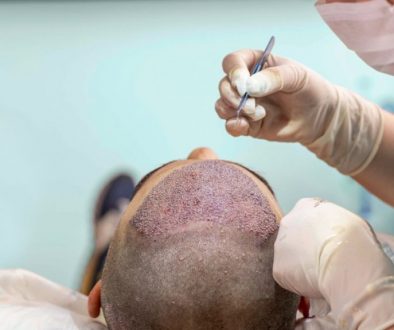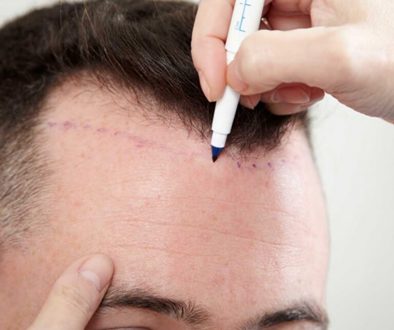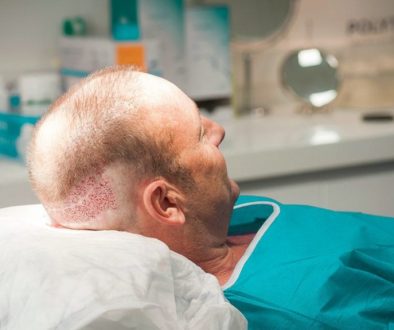Why Does My Hair Transplant Surgeon Want Me To Take Propecia?
I am 21 years old and I have been losing hair since I was 18. I recently consulted with a hair transplant surgeon who told me that I should take Propecia for 1 year before considering surgery. I thought a hair transplant didn’t require pills, so why do I have to take these pills?
Unfortunately, androgenic alopecia (genetic hair loss) is a progressive condition that gets progressively worse over time. Hair restoration does not prevent, slow or treat hereditary hair loss, it simply moves pre-existing hair to another location. Therefore, any native (non-transplanted) hair is still at risk of being attacked by androgen’s that is produced by the body. The 5-alpha reductase enzyme is responsible for converting testosterone to dihydrotestosterone (DHT) through the blood stream. DHT is the main hormone responsible for triggering genetic hair loss.
Propecia (finasteride) is a potent 5-alpha reductase inhibitor, by inhibiting the 5-alpha reductase enzyme the body does not convert testosterone in to DHT. Thus, significantly reducing the amount of DHT that can bind and attach to the hair follicle androgen receptor and shrink the hair follicle until it no longer grows. Currently, Propecia (finasteride) is the most effective hair loss treatment on the market, there are several clinical studies that prove its effectiveness in slowing, stopping and sometimes even reversing hair loss in some individuals.
Sadly, at the age of twenty-one most individuals only just begun their hair loss journey. There are no guarantees with hair restoration, but there is guarantee that an individuals hair loss will progress, especially at the age of twenty-one. Therefore, it is imperative that a prospective hair transplant patient try to prevent further hair loss by taking the most effective medication available Propecia (finasteride). However, if an individual declines or does not want to take any preventive measures to stop the progression of their genetic hair loss, they should be aware of the risk involved. In some cases, the rate of hair loss can be so rapid that more hair is lost than new hair is transplanted. Thus, leaving the individual looking the same or at times even worse than they did before surgery.
The risk of permanent telogen effluvium (shock loss) is also a possibility. Shock loss is generally a short-term form of hair loss, but it can become permanent if the hairs that are shocked were already miniaturized and weak. For this reason, surgeons feel it is best if patients take Propecia (finasteride) prior to surgery to strengthen the native (non-transplanted) hair.
Written and published by,
Melvin- Editorial Assistant and Forum Co-Moderator for the Hair Transplant Network and The Coalition of Independent Hair Restoration Physicians




